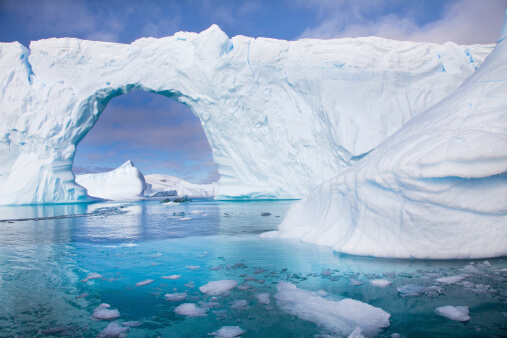Dear Reader, welcome to my blog!
A recent headline in many of the popular news feeds was about Antarctic ice melting three times as faster as it was a decade ago based on a study published on Nature journal. The study was conducted by a large number of scientists from the UK and the US who measured the loss of ice in 24 different ways via 10-15 satellites and other methods.
According to the Guardian, more than more than 70% of the recent melt is in West Antarctica. Meanwhile, the melting in East Antarctica is relatively less concerning. It appears that warmer water is accounting for most of the melt. Lead author of the study Andrew Shepherd from the University of Leeds in England said, “There are no other plausible signals to be driving this other than climate change.”
All the articles highlight the fact that Antarctica has lost almost 3 trillion tons of ice since 1992. Some scientists note that the change is happening faster than they predicted. If the melting accelerates the rise in sea levels will be greater, which is likely to have severe consequences on many cities around the world. According to The New York Times, “the continent is now melting so fast, scientists say, that it will contribute six inches (15 centimeters) to sea-level rise by 2100.” Another study cited by the Guardian predicts a total global sea level rise of more than a meter by 2070.

I suppose that the amount of sea level rise is still unsettled but it is very evident that it will rise and bring along its consequences. According to New York Times, Prof. Shepherd illustrates what waits ahead, “Around Brooklyn you get flooding once a year or so, but if you raise sea level by 15 centimeters then that’s going to happen 20 times a year”.
Prof. Shepherd highlights the need for governments to consider this situation as a “cause for concern” to protect our coastal cities. Many academicians, NGOs and sustainability frameworks call upon the need for realizing how urgent the climate change problem is. Yet there is still a huge lack of consensus among the world on the urgency of the climate change and how it should be addressed. How many more signs do we need until we act (in the right proportion)? Optimistically speaking, we can still slow down the warming given that we take immediate action. Then we can hope that natural cycles work in our favor since nature is an unpredictable complex system. But how long will it take to turn the arguments into corrective action? What if we are past the point of no return by the time they are done arguing?
Thank you for reading, see you in a future post!
References:
https://www.nytimes.com/2018/06/13/climate/antarctica-ice-melting-faster.html
Published on July 9th, 2018Last updated on January 19th, 2021
